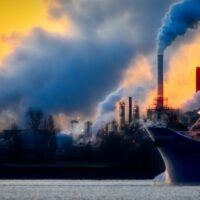-
There are ‘no real consequences’ for toxic emissions events
In some cases, these “chemical releases” aren’t illegal. In others, state regulators give polluters the benefit of the doubt.
-
Climate crisis poses stark choice: Socialism or Extinction
In his latest book, Socialism or Extinction: The Meaning of Revolution in a Time of Ecological Disaster, Martin Empson neatly lays out his argument as to why the climate crisis cannot be solved under capitalism.
-
Fifty Years After ‘The Limits to Growth’: Dennis Meadows interviewed by Juan Bordera
Dennis Meadows: Climate change, inflation, food shortages are symptoms of a bigger problem.
-
How private corporations stole the sea from the Commons
For most of human history, the oceans have been seen as a global commons, the benefits and resources of which belong to us all in equal measure. But our seas–and the marine environment as a whole–are being ravaged by exploitation for corporate profit. The result is a social, economic and ecological crisis that threatens the very life support system of the Earth.
-
America’s biggest reservoirs hit by dead pool jitters
Hoover Dam’s Lake Mead is dangerously close to dead pool status for the first time since construction in the mid 1930s. A vicious hammering drought sequence for over two decades throughout the West threatens to bring America’s biggest water reservoir to its knees.
-
It’s a necessity: Necessity defense in abortion access contexts
In recent years, climate activists charged with crimes for trying to avert our impending global death via climate change have increasingly turned to the “necessity defense” in court to defend against their charges.
-
Inside the Democrats’ climate deal with the devil
The new climate package furthers the U.S.’ most profligate pastimes: drilling oil and driving big cars.
-
Reaching a balance with wild species
The global biodiversity crisis is one of the great threats to planetary health.
-
To save the Planet, we must choose
When Exxon’s CEO is celebrating, you know there’s a problem. But there’s also a solution.
-
Biden’s staff sounds climate alarm — about Biden
A letter obtained by The Lever shows the call for climate action is now coming from inside the administration.
-
European states commit to climate inaction as heat wave begins to recede
The heat wave devastating southern and western Europe gradually began to recede yesterday, as violent storms brought cooler weather across parts of France and Britain. The heat wave continued in southern Europe, with temperatures close to 40°C across much of southern Spain and Italy, and wildfires are still burning across the region.
-
“Neither liberal nor social democratic policies have a structured approach to understanding imperialism, including its ecological history”
Alejandro Pedregal – in conversation with Max Ajl
-
$2 Trillion for War Versus $100 Billion to Save the Planet.
The West seems more fixated on spending social wealth on the military rather than addressing the climate catastrophe.
-
Existing climate mitigation scenarios perpetuate colonial inequalities
The core countries of the Organisation for Economic Co-operation and Development (OECD) and the rest of Europe (collectively referred to here as the Global North) use on average about 130 gigajoules of energy per capita each year, nearly ten times more than what low-income countries use (13·4 GJ/capita).
-
Greenland threatens
It rained for 9 hours at Summit Station/Greenland, 10,530’ elevation.
-
Heat waves tied to Big Energy capitalism
The population of the world is enduring crises from climate change that, until recently, climatologists thought may only happen decades from now.
-
The capitalist solution to ‘save’ the planet: make it an asset class & sell it
John Bellamy Foster explains the capitalist ‘solution’ master-minded by global finance to resolve the imminent environmental crisis: create a multi-quadrillion dollars worth of assets on the back of everything nature does and expropriate it from the global commons to make a profit. Worse still: it is already happening.
-
Don’t look to EPA to save us!
The 51-year-old agency has been losing both power and credibility over recent decades, and SCOTUS’s recent ruling undermines it even more.
-
The Global South has the power to force radical climate action
After all, Western economies–and their economic growth–depend utterly on labour and resources from the South.
-
Supreme Court condemns planet and human life
In a 6‒3 decision, the United States Supreme Court ruled on June 30 against the Environmental Protection Agency’s (EPA) ability to regulate greenhouse gas emissions, a move that signals a major setback in the fight against climate change.


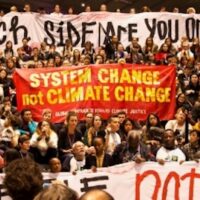


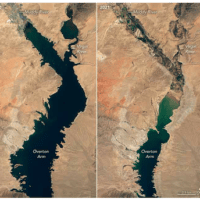
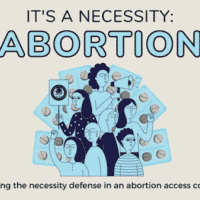
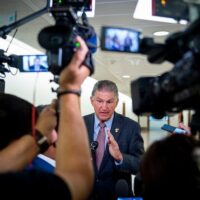
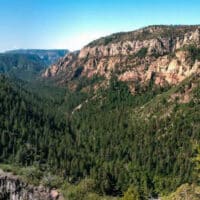
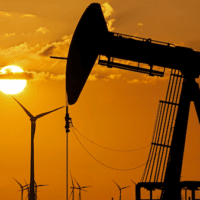


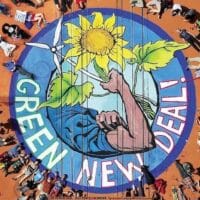

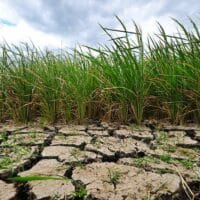
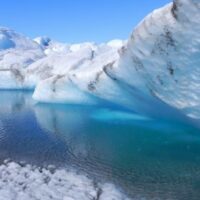
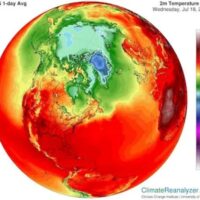


![Protesters carry placards as they demonstrate as part of a global day of action on climate change outside parliament in Cape Town, South Africa, September 25, 2020 [Mike Hutchings/Reuters]](https://mronline.org/wp-content/uploads/2022/07/Screen-Shot-2022-07-06-at-8.34.05-PM-200x200.png)
